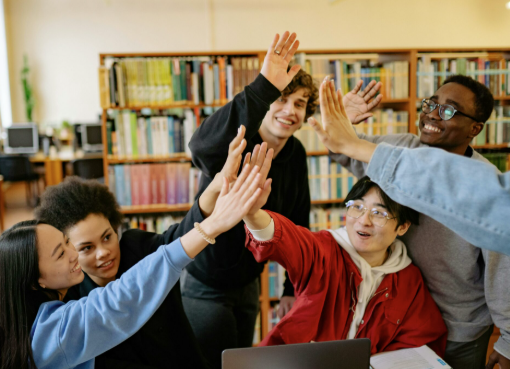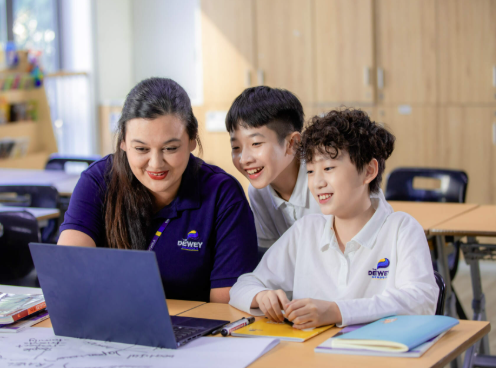As we move further into the 21st century, the workforce is evolving at a rapid pace. Automation, technological advancements, and shifting industries mean that today’s students must prepare for careers that may not even exist yet. To meet these demands, high schools are increasingly focusing on equipping students with future-proof skills—skills that can adapt to change and stand the test of time. These include critical thinking, creativity, communication, and problem-solving.
Rather than focusing solely on traditional academics, many high schools now offer programs that aim to teach students these essential life skills. These programs not only enhance students’ academic understanding but also prepare them for the challenges and opportunities of the future. Below, we explore some of the most valuable skills students can learn through these innovative high school programs.
STEM Programs: Fostering Innovation and Problem-Solving
STEM (Science, Technology, Engineering, and Math) programs have become a key part of modern education, and for good reason. These fields are at the forefront of technological and scientific advancement, shaping industries like healthcare, robotics, and renewable energy. High school students who engage in STEM-related activities develop problem-solving abilities, critical thinking, and creativity.
Programs like robotics clubs, coding workshops, and science fairs give students hands-on experience that helps them think analytically and innovatively. These activities often involve team collaboration, further enhancing their communication and teamwork skills. Students learn to approach challenges with a methodical mindset, which is essential in an ever-changing job market.
For example, a student involved in a robotics club will not only learn about mechanical engineering but also how to work in a team, manage projects, and present their ideas clearly—all of which are vital skills in almost every field. By the time they graduate, these students will have a deep understanding of technology and how to apply it to solve real-world problems.
Career and Technical Education (CTE): Preparing for Immediate Job Opportunities
Career and Technical Education (CTE) programs offer high school students the opportunity to gain valuable skills in fields that are in high demand. CTE covers a wide range of disciplines, including healthcare, graphic design, construction, and culinary arts. These programs are often a great option for students who want to enter the workforce immediately after graduation or pursue further technical training.
Students in CTE programs receive both classroom instruction and hands-on experience. For instance, those interested in healthcare may participate in internships at local clinics or hospitals, while students studying culinary arts might work in school-run restaurants or catering services. These real-world applications allow students to build portfolios and gain experience that will be useful in future careers.
CTE programs also provide students with a direct path to well-paying jobs. Many careers in these fields offer competitive salaries, and having technical certifications or experience can make students more attractive to employers. Additionally, the practical skills learned in these programs are transferable, meaning students can pivot to different careers in the future if needed.
Digital Media and Communication: Navigating the Digital World
In today’s interconnected world, strong communication skills are more important than ever. High schools are increasingly offering programs in digital media, which teach students how to create content for websites, social media, and other online platforms. These programs help students develop skills in writing, video production, graphic design, and social media management—skills that are highly valued by employers across industries.
With the rise of digital marketing, content creation, and online communication, students who learn how to navigate the digital world gain an edge in the job market. Digital media programs also help students become proficient in the tools and technologies used by professionals in the field. From learning how to use video editing software to building a personal blog or website, these skills are critical for students aiming to pursue careers in marketing, journalism, or any creative field.
Moreover, digital communication programs emphasize the importance of storytelling, branding, and understanding target audiences—skills that are beneficial regardless of industry. Being able to communicate effectively online is a powerful tool for anyone entering the modern workforce.
Financial Literacy and Entrepreneurship: Building Independence
Understanding personal finance is a crucial skill for success in the modern world. Financial literacy programs teach students how to manage their money, budget, save, and invest—skills that will serve them for the rest of their lives. Many schools also offer entrepreneurship programs, where students can learn the basics of running a business, including how to develop a business plan, raise capital, and market their product or service.
Entrepreneurship programs, in particular, help students develop critical thinking, creativity, and leadership skills. They encourage students to think innovatively and take calculated risks, all while learning the practicalities of business operations. Whether a student decides to start their own business or work for a large corporation, the skills learned through entrepreneurship are invaluable.
Leadership and Community Service: Developing Soft Skills
In addition to technical skills, high school programs that focus on leadership and community service are also essential for building future-proof skills. Participation in student government, volunteer organizations, or service learning programs helps students develop emotional intelligence, empathy, and interpersonal communication. These programs foster a sense of responsibility and encourage students to become active, engaged citizens.
Through leadership roles, students learn how to work with diverse teams, handle challenges, and make decisions that impact others. These experiences teach them how to manage conflict, motivate others, and communicate effectively—skills that are in high demand in any workplace.
How to Get Started
If you’re a student or parent looking to explore these opportunities, here are some steps to get started:
Talk to your school counselor: Ask about elective courses, clubs, and internship opportunities available to students.
Research programs: Look for programs that align with your interests and career goals.
Participate in extracurricular activities: Get involved in clubs or organizations that will allow you to develop and refine your skills.
Consider summer programs or online courses: Many organizations offer programs outside of school that can help you expand your knowledge and skill set.
Conclusion
Preparing students for a future that is constantly changing requires more than just traditional academics. High school programs that focus on future-proof skills like critical thinking, communication, and technical expertise give students the tools they need to succeed, regardless of the career paths they pursue. By participating in these programs, students can leave high school not just with a diploma but with the confidence and experience to thrive in an ever-evolving world.














